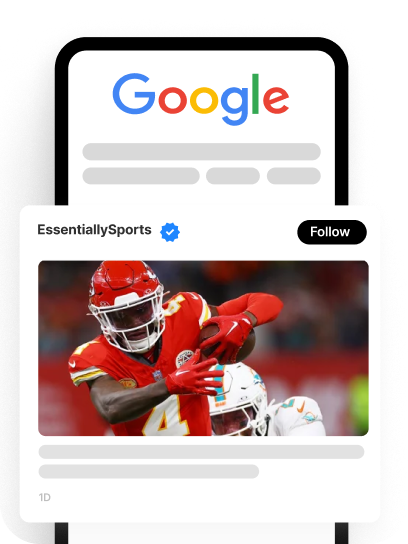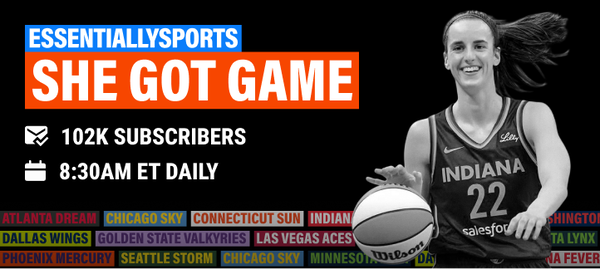
Imago
imagn

Imago
imagn
“Worst leadership in the world.” That’s how Napheesa Collier described the WNBA management led by commissioner Cathy Engelbert, after sharing her frustrations over issues like pay and officiating. In response, Engelbert acknowledged the strained relationship and vowed to take action, announcing a new multi-stakeholder task force to evaluate officiating.
Watch What’s Trending Now!
“If the players in the W don’t feel appreciated and valued by the league, then we have to do better and I have to do better,” Engelbert said. “If they don’t feel that appreciation, then I will do everything I can to change that.”
Still, as things stand, the future of the league hangs in the balance.
According to Front Office Sports, there’s reportedly an offer on the table for WNBA players that includes a new supermax salary of around $850,000 and a veteran minimum of $300,000. When you compare that with the current numbers, where a supermax is worth $249,244 and a veteran minimum contract is worth $78,831, it looks like a massive step forward. But the players aren’t just asking for a pay raise. They’re fighting for a bigger share of the league’s revenue, as they currently receive less than 10% of the WNBA’s basketball-related income.
The league is clearly headed toward a lockout if negotiations don’t wrap up soon, and the fallout won’t just hit the players. The owners are set to take a massive hit, too. As reporter Terrika Foster-Brasby pointed out, a lockout could impact the ambitious future Cathy Engelbert has been envisioning for the WNBA.
Speaking on the WNBA on NBC YouTube channel, Terrika Foster-Brasby said, “Adding to the fact that buying a team or getting an expansion team is upward of $325 million plus at this particular moment. Owners want their money too, and they want to get and be a part of a financial investment that is continuing to grow. And some could argue that that is a hindrance if the commissioner has an issue with the players, because this is the face of the negotiations.”
The WNBA is set to bring in $925 million in expansion fees by 2030 as the league grows to 18 teams. Commissioner Cathy Engelbert called it “far more than expansion of the WNBA, it’s an evolution” and a “transformational investment in the future of women’s sports.”
The latest three teams, Cleveland, Detroit, and Philadelphia, reportedly paid around $250 million each, according to ESPN. Meanwhile, the Connecticut Sun have been sold for a record $325 million, but the deal is currently stalled as the WNBA explores relocating the team to Houston rather than Boston. On top of that, Toronto Tempo and Portland Fire are set to join the league in 2026, and a potential lockout couldn’t come at a worse time for their owners, who would face significant financial losses. Existing owners aren’t completely in the clear either.
Back in 2022, under the leadership of Cathy Engelbert, a group of investors, including Nike, Michael Dell, Linda Henry, Dee Haslam, Condoleezza Rice, Micky Arison, and Laurene Powell Jobs, invested $75 million in the WNBA at a $400 million valuation, or $475 million post-money. In hindsight, that deal is often seen as a misstep, as it didn’t fully anticipate the enormous impact Caitlin Clark would have on the league.
This marked the start of a major shift in the league’s ownership structure, breaking the previous 50-50 split between WNBA and NBA owners. Sixteen percent of the stake went to the new investors, leaving 42% each for the WNBA and NBA.
But with expansion now underway, starting with the Golden State Valkyries, it’s the WNBA owners’ 42% equity stake that’s taking the hit, getting diluted with each new team. Owners losing a share of revenue with every addition are going to push for more money, especially since the league hasn’t been profitable until recently. A potential lockout would only make those losses worse.
And the situation has escalated to the point where the commissioner is now getting booed by fans left and right.
No End in Sight for Cathy Engelbert’s Struggles
When Adam Silver hired Cathy Engelbert six years ago, she became the first official commissioner of the WNBA. Since then, she has overseen significant growth in the league, including an 11-year, $2.2 billion media rights deal set to take effect next season, as well as the addition of six new franchises.
But as she took the microphone to congratulate the Las Vegas Aces and crown them WNBA champions, fans in Phoenix drowned out her message with relentless booing. It was a protest over the league not meeting the players’ demands, as well as her previous comments about Caitlin Clark and others, which she has since denied following Phee’s revelations.
Booing commissioners is nothing new in sports. NFL commissioner Roger Goodell and NHL commissioner Gary Bettman are often jeered on draft day and even at championship events. Even Adam Silver isn’t immune, regularly hearing boos at the NBA Draft. But this one feels different.
Adam Silver has openly acknowledged that the rift between the players and the commissioner needs to be fixed. But talk is one thing–action is another. If these tensions continue, it’s not just the players who might lose faith; even the owners could start questioning her leadership. With the league’s growth, new franchises, and billions in investment on the line, the WNBA’s future is hanging in the balance.

